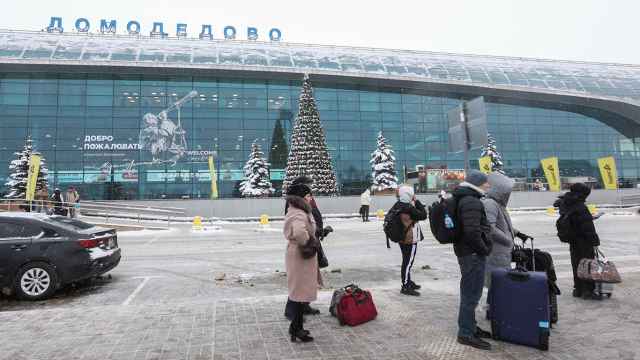Most, if not all, surveys show tremendous growth in the e-commerce market in Russia and indicate even greater potential in the long run. In the B2C sector people are used to buying products, services and content online. There is a duty-free regime for goods purchased from abroad with a value up to 1,000 euros. In case of intangibles (such as computer programs, e-books, music or video content), there is no concept of electronic import in Russia. Often with no Russian-source taxation, offshore-based e-commerce is more lucrative and preferred over domestic structures.
REGULATORY FRAMEWORK

Arseny Seidov,
Partner
Baker & McKenzie
Most e-commerce in Russia relates to the B2B sector, especially in the IT and telecoms, banking and financial services industries. However, the many regulatory gaps, currency control and documentation requirements for tax deductibility of expenses and no advanced tax rules mean either a high risk or practical inconvenience for Russian businesses when doing transactions with overseas partners. Furthermore, corporations have to comply with other areas of law, such as copyright, commercial and personal data protection in cyberspace; use of strong encryption, including through electronic downloads, can require licensing or special software to execute transactions using electronic digital signatures; there is a separate regulatory framework for the gaming industry and restrictions on advertising.
DOWNSIDES OF OFFSHORE STRUCTURES
Unfortunately, Russia has not worked out any solid strategy yet for how to develop and regulate e-commerce. At the same time, while there are many unknowns and risk factors, these very loopholes create room for maneuvering and structuring a business in a legitimate and tax-efficient way.
It goes without saying that tax-wise, setting up an offshore e-sales center with no physical presence, or at least no sales force in Russia, is the most tax-efficient way. However, in the B2B sector the Russian customer should have a duly executed agreement (and supporting documentation showing transfer and use of cross-border services, etc.) to be able to deduct outbound payments for tax purposes and to open a "transaction passport" with his bank to be able wire the fees. Unfortunately, the current regulations and conservative attitude of taxpayers mean that electronic digital signatures cannot be used for such agreements, and such signatures would in any case require special software provided by accredited certification centers in Russia. Some companies manage to circumvent this inconvenience by sending executed originals by mail in advance and building in such extra paperwork and shipment costs into their business model.
VAT Aspects of "Cloud Sales" Russian tax rules do not provide for any special tax treatment of transactions concluded over the Internet. Instead it is largely the civil law nature of a transaction that makes it fall into one of several categories: goods, works, services or licenses. For example, data collection and/or processing, engineering, and some other limited categories would be subject to 18 percent Russian VAT if the customer is located in Russia. Software sales under a license agreement are exempt from Russian VAT, but software as a service (SaaS) would not normally enjoy such beneficial tax treatment (unless legitimately structured as auxiliary to principal VAT-exempt software use licenses). Technical maintenance and support could also be exempt from VAT if they resemble licensing of updated software, but separate help-desk services would be VAT-able consulting services. Overall, while the reverse charge VAT that must be withheld by Russian customers can be contractually grossed up and is normally recoverable, it frequently carries a substantial cash flow disadvantage and should be minimized where possible.
PERMANENT ESTABLISHMENT RISK FACTORS
If a local representative office takes care of the marketing of "offshore offerings" the supplier may run into the risk of creating a taxable permanent establishment, and not necessarily due to the existence of a so-called "dependent agent" that can negotiate transactions with local clients (which is a widely used, but often difficult-to-detect, practice). Russia has a broad definition of a permanent establishment that captures "any other place of activity … through which the company sells goods or provides services." In a broad interpretation, such place of activity could potentially be the location of the server or web hosting service provider (the approach of some OECD countries). Though there is no such practice yet, it is only a matter of time before the tax administration addresses this risk.
In case of unrelated subcontractors who could locally burn master software into discs (to avoid customs clearance and duties on physical importation), provide services to local customers on behalf of foreign suppliers, etc., the permanent establishment risk would be remote. However, the rapidly evolving concepts of "business purpose," "unjustified tax benefits" and "substance over form" might make currently safe structures riskier, especially for long-term renewable contracts once sourced by local sales representatives. Businesses have to be alert and regularly monitor not only changes in the law but also case law developments in order to manage these risks.
A Message from The Moscow Times:
Dear readers,
We are facing unprecedented challenges. Russia's Prosecutor General's Office has designated The Moscow Times as an "undesirable" organization, criminalizing our work and putting our staff at risk of prosecution. This follows our earlier unjust labeling as a "foreign agent."
These actions are direct attempts to silence independent journalism in Russia. The authorities claim our work "discredits the decisions of the Russian leadership." We see things differently: we strive to provide accurate, unbiased reporting on Russia.
We, the journalists of The Moscow Times, refuse to be silenced. But to continue our work, we need your help.
Your support, no matter how small, makes a world of difference. If you can, please support us monthly starting from just $2. It's quick to set up, and every contribution makes a significant impact.
By supporting The Moscow Times, you're defending open, independent journalism in the face of repression. Thank you for standing with us.
Remind me later.





